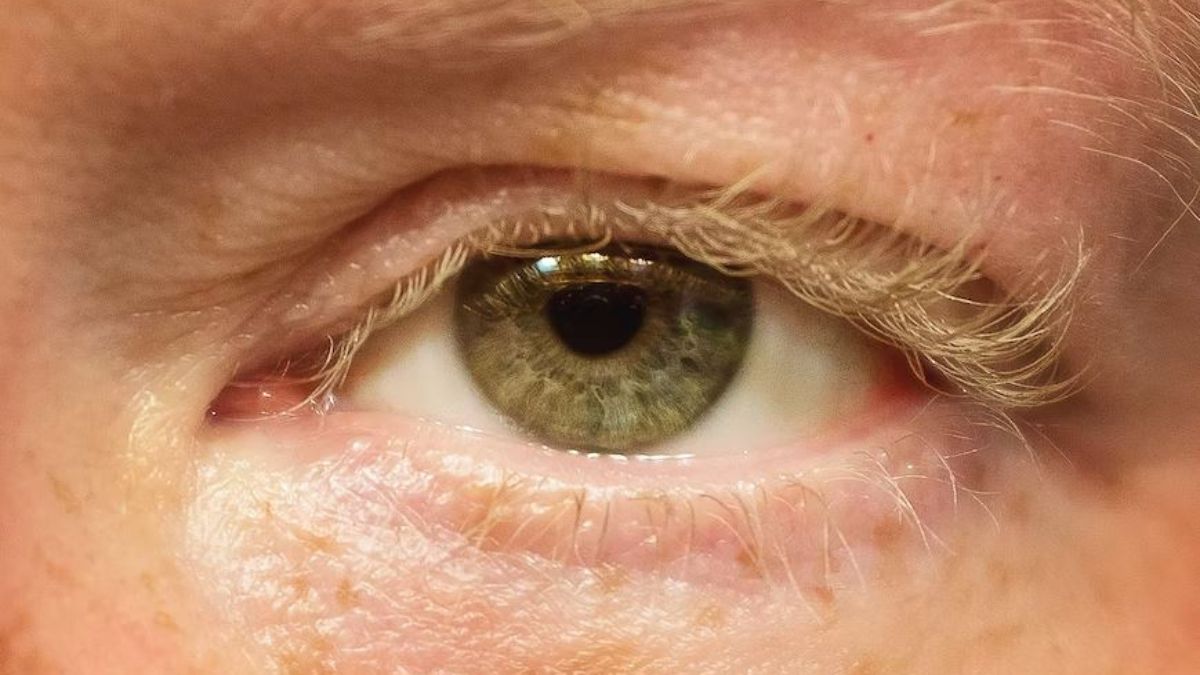HEALTH
In Pain? Here’s How to Find an Emergency Dentist in Houston

You never prepare for a dental emergency. It usually strikes at the worst time: at night, late at night, on the weekend, or just before the big event. One moment, you’re fine. Next, you have an overriding toothache, a chipped tooth, and a swollen jaw.
Once that occurs, the last thing you will want to do is search for hours online or wait for a traditional appointment. In reality, what you need is an emergency dentist near you who can assist immediately.
Houstonians with a dental crisis don’t have to worry because they have some options. This guide will explain what is considered a dental emergency, as well as what to expect and how to obtain help not too much later.
How do we define a dental emergency?
It’s not always clear when a dental problem is an emergency. But here’s a simple rule: If it’s painful/swollen/bleeding and is causing you problems with eating, sleeping, or talking, then it probably needs urgent attention.
Here are some common reasons people in Houston visit an emergency dentist:
- Severe or sudden toothache
- Chipped, cracked, or broken teeth
- Knocked-out teeth
- Gum swelling or abscesses
- Bleeding that won’t stop
- Jaw pain or trauma
- Lost fillings or crowns
If it hurts and you can’t wait, don’t. Seeking help quickly can prevent complications and save your teeth.
Why Acting Fast Matters
Dental issues rarely improve on their own. The longer you wait, the worse things can get.
A cracked tooth can become infected. An infection can spread to your jaw. A lost crown can leave your tooth exposed and painful. What starts as a minor issue could quickly become a serious one.
Seeing an emergency dentist near me means you’re putting your health first. You’ll be treated quickly, your pain will be managed, and you’ll avoid future complications.
What to Expect at an Emergency Dental Visit
Worried about what happens when you walk through the door? Don’t be. A good emergency dentist will make things simple and stress-free.
First, they’ll examine your mouth and ask a few questions about your symptoms. They may take X-rays to get a better look at what’s going on.
Once they understand the problem, they’ll explain your options. This could mean:
- Treating an infection
- Replacing a lost filling or crown
- Performing a root canal
- Extracting a damaged or infected tooth
- Prescribing antibiotics or pain relief
You’ll know exactly what’s going on, how long it will take, and what it will cost. Most treatments can be done right then and there, without the need for a follow-up appointment.
Can You Get Help After Hours in Houston?
Yes, you can. That’s one of the best things about having a trusted emergency dentist nearby. Many clinics in Houston offer extended hours, weekend appointments, or same-day treatment.
Dental emergencies don’t stick to a 9-to-5 schedule. Your dentist shouldn’t either. If your usual provider isn’t available, call a clinic that focuses on emergency care—they’re prepared for last-minute situations and know how to get you sorted fast.
Handling the Pain Until You Get There
If you’re in pain and can’t get to the dentist straight away, there are a few things you can do to manage it in the meantime:
- Rinse your mouth with warm salt water
- Take over-the-counter pain relievers like ibuprofen (if safe for you)
- Use a cold compress on the outside of your cheek
- Avoid chewing on the affected side
- Don’t put aspirin directly on your gums—it can burn the tissue
These are only short-term solutions. The most important thing is still to see an emergency dentist near me as soon as you can.
Prevention: The Best Long-Term Strategy
Let’s face it—no one wants to be in an emergency chair if they can help it. While not every dental crisis is avoidable, many are.
That’s why regular dental checkups matter. Cleanings, exams, and early treatment can stop small problems from turning into big ones.
If your wisdom teeth are acting up, for example, don’t wait until they’re infected. Have a dentist assess them early, so you can plan, rather than face pain and swelling at 2 a.m.
How Wisdom Teeth Can Cause Emergencies
Speaking of which, your wisdom teeth are often the culprits behind sudden dental pain. They tend to appear between the ages of 17 and 25 and can cause all sorts of problems:
- Crowding other teeth
- Becoming impacted (stuck in the gum)
- Causing infections or gum inflammation
- Leading to jaw pain or headaches
If you’ve been ignoring a dull ache at the back of your mouth, it might be time to check it out. Wisdom tooth issues rarely sort themselves out on their own. Left untreated, they can turn into full-blown emergencies overnight.
Choosing the Right Emergency Dentist in Houston
Not all dental clinics are the same. When choosing an emergency provider, look for:
- Experience with urgent dental care
- Same-day or next-day appointments
- Clear communication and upfront pricing
- Friendly staff who help you feel at ease
- A clean and professional clinic environment
It’s also a good idea to find a practice that offers a full range of services. That way, if you need follow-up care or future treatment, you don’t have to start from scratch with someone new.
You’re Never Alone in a Dental Emergency
Dental pain is nothing to ignore. Whether it’s a chipped tooth or a throbbing molar, the faster you get help, the better your outcome.
The good news? If you’re in Houston, expert help is just around the corner. Finding an emergency dentist near me means you can stop worrying and start healing without delay.
And if wisdom teeth are behind the trouble, don’t wait for things to get worse. Book a consultation with a trusted wisdom tooth extraction dentist who can sort the issue before it becomes an emergency.
Whether it’s the middle of the night or a rushed morning before work, you’ve got somewhere to turn. That peace of mind makes all the difference.
HEALTH
Betametacron in Dermatology: A Comprehensive Guide for Patients

Introduction to Betamethasone and Clotrimazole
When it comes to managing skin conditions, finding the right treatment can feel overwhelming. Among the many options available, Betametacron stands out as a powerful ally in dermatology. This topical medication combines two potent ingredients—betamethasone and clotrimazole—to tackle a range of skin issues effectively. Whether you are dealing with inflammation, infection, or stubborn rashes, understanding how Betametacron works can empower you to take control of your skincare journey. Dive into this comprehensive guide tailored for patients seeking clarity on Betametacron and its role in promoting healthier skin.
What is Betametacron and How Does it Work?
Betametacron is a topical medication that combines the power of betamethasone and clotrimazole. Betamethasone, a potent corticosteroid, helps reduce inflammation, redness, and itching in the skin. Clotrimazole is an antifungal agent that effectively combats fungal infections.
When applied to affected areas, Betametacron targets the root causes of various skin conditions. It works by suppressing the immune response that leads to inflammation while simultaneously eradicating fungal growth.
This dual-action approach makes it effective for treating conditions like athlete’s foot or eczema with associated secondary infections. As it penetrates deep into the skin layers, users often experience relief from annoying symptoms within days.
Always follow your dermatologist’s advice regarding its use to ensure maximum effectiveness and safety during treatment.
Common Skin Conditions Treated by Betametacron
Betametacron is effective against a variety of skin conditions. One common issue it treats is eczema, which can cause itchy and inflamed skin. The anti-inflammatory properties of Betametacron help soothe the irritation.
Psoriasis is another condition that benefits from this medication. It aids in reducing plaque buildup and alleviates discomfort associated with flare-ups.
In cases of fungal infections like athlete’s foot or ringworm, Betametacron works by combating both inflammation and infection simultaneously. This dual action helps speed up healing.
Contact dermatitis, often resulting from allergens or irritants, responds well to treatment with Betametacron as well. Patients experience significant relief from redness and swelling after using the medication properly.
Acne can also be managed effectively with this topical solution due to its ability to reduce inflammation around blemishes while addressing any underlying fungal issues that may exacerbate breakouts.
Proper Usage and Dosage of Betametacron
Using Betametacron requires careful attention to dosage and application. Always follow your dermatologist’s instructions closely for the best results.
Typically, a thin layer of cream or ointment should be applied directly to the affected area. This helps ensure that the medication penetrates effectively without overloading your skin.
Frequency of use can vary depending on the condition being treated. Generally, applying it once or twice daily is common practice.
Avoid using it longer than prescribed; prolonged use may lead to skin thinning or other complications. If you notice any changes in your skin’s condition, consult your healthcare provider promptly.
Make sure not to apply Betametacron on open wounds or broken skin unless directed by a doctor. Proper hygiene before application is essential as well; wash your hands thoroughly and dry them completely before touching the tube or applying the product.
Potential Side Effects and Precautions
Like all medications, Betametacron may come with potential side effects that users should be aware of. Some common reactions include skin irritation, burning sensations, or itching at the application site. These symptoms are usually mild but can vary from person to person.
Long-term use might lead to thinning of the skin or stretch marks in some individuals. It’s essential to monitor your skin’s condition regularly while using this medication.
Patients with a history of allergies should discuss their medical background with a healthcare provider before starting treatment. Additionally, those who are pregnant or nursing should seek guidance on the safety of using Betametacron during these periods.
Always follow your doctor’s instructions regarding dosage and duration. Misuse could increase risks for adverse reactions and diminish its effectiveness over time.
Alternative Treatments for Skin Conditions
When it comes to treating skin conditions, many patients seek alternatives alongside or instead of traditional medications. Natural remedies can often provide relief and may be worth exploring.
Essential oils, like tea tree oil and lavender, have anti-inflammatory properties that some find soothing for their skin issues. They can reduce redness and irritation when applied correctly.
Another option is the use of herbal creams containing ingredients such as calendula or chamomile. These gentle formulations help in healing minor irritations while being kind to sensitive skin.
Dietary changes also play a role. Incorporating omega-3 fatty acids from sources like fish or flaxseed can improve overall skin health by reducing inflammation internally.
Practices like acupuncture and yoga are gaining traction within dermatology circles for their holistic benefits on stress-induced skin problems. Exploring these avenues might unlock new pathways for comfort and wellness in dealing with skin concerns.
Tips for Choosing a Dermatologist
Finding the right dermatologist can make all the difference in your skin health journey.
Start by seeking recommendations from friends, family, or primary care physicians. Personal experiences often point you in the right direction.
Check credentials and certifications to ensure your chosen dermatologist is board-certified. This guarantees they have undergone rigorous training.
Consider their areas of expertise. If you have a specific condition like psoriasis or eczema, look for someone specialized in that field.
Read online reviews to gauge patient satisfaction. Pay attention to feedback regarding wait times, staff behavior, and treatment outcomes.
Don’t hesitate to schedule a consultation before making a decision. This allows you to assess communication style and whether you feel comfortable with them.
Location matters too; choose someone whose office is easily accessible for regular visits or emergencies.
Conclusion
When it comes to managing various skin conditions, Betametacron offers a powerful solution. Its unique combination of betamethasone and clotrimazole works effectively against inflammation and fungal infections. Many patients have found relief through its proper usage.
Understanding the potential side effects is essential for anyone considering this treatment. While effective, awareness of risks can help you make informed decisions about your skincare regimen. Always consult with a healthcare professional to ensure you’re using Betametacron safely.
Consider exploring alternative treatments if you’re looking for different options or wish to complement your current therapy. Each person’s skin is unique, which means that what works for one may not be ideal for another.
Finding the right dermatologist can significantly impact your experience with any treatment plan. Look for someone who understands your concerns and provides personalized care tailored to your needs.
As you navigate the world of dermatology and explore treatments like Betametacron, remember that knowledge empowers you in making choices about your skin health journey. Prioritize understanding both the benefits and potential drawbacks, ensuring that every step leads toward healthier skin.
HEALTH
The Role of Bělmo in Vision: What You Need to Know

Introduction to Bělmo
Bělmo might not be a term you encounter every day, but understanding it is crucial for maintaining good vision. This often-overlooked part of eye health can significantly impact your sight and overall well-being. Whether you’re familiar with the term or hearing it for the first time, exploring what Bělmo is and how it affects us can empower you to take better care of your eyes. Let’s dive into this fascinating topic together!
What Causes Bělmo?
Bělmo, commonly known as pterygium or “surfer’s eye,” is primarily caused by prolonged exposure to ultraviolet (UV) sunlight. It often develops in individuals who spend significant time outdoors without proper eye protection.
Chronic irritation from wind, dust, and sand can also contribute to its formation. These environmental factors lead the tissue on the conjunctiva to grow abnormally over the cornea.
In some cases, genetic predisposition plays a role. If your family has a history of bělmo, you might be more susceptible.
Moreover, certain climate conditions may increase risk. Areas with high UV radiation levels are particularly notorious for this condition.
Understanding these causes can help identify who may be at greater risk and encourage preventive measures against bělmo development.
Symptoms and Effects of Bělmo on Vision
Bělmo, or pterygium, often presents noticeable symptoms that can impact daily life. One of the most common signs is a visible growth on the eye’s surface. This fleshy tissue may start small but can gradually expand.
Patients frequently report discomfort. Itchiness and redness are prevalent complaints. Some individuals experience a sensation akin to having something in their eye.
Vision changes can also occur as Bělmo progresses. Blurriness or distortion might affect how you see objects clearly. In severe cases, it could lead to astigmatism.
The emotional toll shouldn’t be overlooked either. Many find themselves self-conscious about their appearance due to the visibility of this growth. Understanding these effects is essential for those who suspect they might have Bělmo, encouraging timely attention and care from an eye specialist.
Treatment Options for Bělmo
Treatment for Bělmo varies depending on the severity and underlying causes. In mild cases, no intervention may be necessary. Regular monitoring by an eye care professional can be sufficient.
For more pronounced issues, artificial tears or lubricating eye drops may help alleviate discomfort. These products provide moisture and reduce irritation associated with Bělmo.
If symptoms persist or impact vision significantly, surgical options might be considered. Procedures like pterygium surgery can remove abnormal growths affecting sight and aesthetics.
In some instances, treating underlying conditions such as dry eyes or allergies is essential to manage Bělmo effectively. Addressing these root causes can lead to improved outcomes and enhanced quality of life for individuals affected by this condition.
Consultation with an ophthalmologist is crucial in determining the best course of action tailored to individual needs and circumstances.
Prevention and Management of Bělmo
Preventing Bělmo starts with understanding risk factors. Regular eye exams are vital, especially for those with a family history of eye conditions. These check-ups can help catch any early signs.
Keeping your eyes protected from UV light is another essential step. Sunglasses that block UVA and UVB rays reduce the likelihood of developing Bělmo due to sun exposure.
Managing existing health issues, like diabetes or hypertension, plays an equally important role in prevention. Proper control over these conditions can minimize complications related to vision.
Incorporating a balanced diet rich in vitamins A, C, and E supports overall eye health. Foods such as carrots, spinach, and nuts offer nutrients that strengthen eyesight.
Staying hydrated also contributes to maintaining healthy eyes. Drinking plenty of water helps keep the ocular surface moist and comfortable throughout the day.
Myths and Misconceptions about Bělmo
Many people hold misconceptions about Bělmo, often leading to confusion. One common myth is that it only affects the elderly. While age can be a factor, Bělmo can occur in individuals of all ages.
Another prevalent belief is that Bělmo is always associated with severe pain or discomfort. In reality, some cases may present minimal symptoms or go unnoticed until an eye examination reveals them.
Some think that wearing glasses will completely resolve issues related to Bělmo. However, corrective lenses do not treat this condition; they merely assist with refractive errors.
There’s a notion that surgery is the only solution for Bělmo. Many treatment options exist depending on severity and underlying causes—surgery is just one pathway among several available choices.
Understanding these myths helps demystify the condition and promotes better awareness for those affected by it.
Conclusion: Importance of Early Detection and Treatment
Detecting Bělmo early is crucial for maintaining optimal vision. When caught in its initial stages, treatment options can be more effective and less invasive. Ignoring the symptoms may lead to complications that could significantly affect your eyesight.
Regular eye check-ups are essential. They can help identify any changes in your eyes before they become serious issues. Maintaining a healthy lifestyle also plays a vital role in preventing Bělmo.
Understanding this condition empowers you to seek help promptly. If you notice any signs of discomfort or changes in your vision, don’t hesitate to consult an eye care professional. Staying informed is key to ensuring long-term eye health and preserving clear vision for years to come.
HEALTH
Transform Your Health: What to Expect from Fitoofitness.in Classes

Introduction to Fitoofitness.in Classes
Are you ready to embark on a journey that transforms your health and fitness? Welcome to Fitoofitness.in Classes, where every session is designed with your well-being in mind. Whether you’re just starting out or looking to level up your routine, our classes provide the perfect blend of motivation and expertise. Imagine stepping into a space filled with energy, dedication, and support—all aimed at helping you achieve your fitness goals. At Fitoofitness.in, we believe that fitness should be fun and accessible for everyone. Let’s dive deeper into what makes our classes unique!
Benefits of Fitoofitness.in Classes
Fitoofitness.in Classes offer a range of benefits that cater to all fitness levels. Whether you are a beginner or an experienced athlete, the classes are designed to challenge and motivate.
One significant advantage is the flexibility in scheduling. Participants can choose from various times throughout the week, making it easier to fit workouts into busy lifestyles.
Additionally, these classes foster a sense of community. Engaging with like-minded individuals creates accountability and support among members, enhancing motivation.
The diverse workout options also keep things fresh and exciting. From yoga to high-intensity interval training (HIIT), there’s always something new to try.
Fitoofitness.in focuses on overall well-being. Beyond physical fitness, mental health benefits emerge through stress relief and increased energy levels from regular participation in classes.
Types of classes offered
Fitoofitness.in Classes offer a diverse range of options to cater to all fitness levels. From high-energy aerobics to calming yoga sessions, there’s something for everyone.
High-intensity interval training (HIIT) classes are perfect for those looking to torch calories in a short amount of time. These fast-paced workouts keep your heart rate up and can be adapted to suit beginners or seasoned athletes alike.
For the mind-body connection, explore our yoga classes that focus on flexibility and relaxation. They help reduce stress while improving strength and balance.
Don’t forget about dance fitness! Engage in fun sessions that combine choreography with cardio, making exercise feel like a party.
We also offer specialized programs targeting specific goals such as weight loss or muscle gain. Each class is designed not just for variety but also effectiveness in helping you reach your individual objectives.
Personalized fitness plans
At Fitoofitness.in, personalized fitness plans are more than just a trend. They’re tailored experiences designed to meet your unique goals and needs.
When you join, our team takes the time to understand your current fitness level, preferences, and aspirations. This information forms the foundation of your custom plan. We believe that one size does not fit all in fitness.
Your journey might include strength training, cardio workouts, or flexibility exercises based on what resonates with you. The beauty of these plans lies in their adaptability; as you progress, adjustments can be made to keep things fresh and challenging.
This individualized approach ensures that every workout feels relevant and motivating. You won’t just follow a generic routine; you’ll engage in a program crafted specifically for you—one that evolves along with your achievements and challenges.
Experienced and certified instructors
At Fitoofitness.in, our instructors are the backbone of every class. Each one is not only certified but brings a wealth of experience to the table. They understand that fitness isn’t just about breaking a sweat; it’s about fostering a positive mindset and creating an environment where everyone feels welcome.
These professionals stay updated with the latest fitness trends and techniques. Their dedication ensures you receive guidance that aligns with best practices in health and wellness.
More than just trainers, they act as motivators who inspire you to push your limits and achieve personal goals. With their support, you will feel empowered on your fitness journey.
Whether you’re new to exercise or looking to elevate your routine, their expertise makes all the difference in achieving sustainable results. You’ll find yourself learning from their insights while enjoying every session along the way.
Real-life success stories
Real-life success stories inspire and motivate. At Fitoofitness.in, clients have transformed their lives through dedication and commitment.
Take Ravi, for instance. He struggled with weight for years but decided to join a fitness class. With personalized guidance from trainers, he lost over 30 pounds in six months. His energy levels soared, making daily activities easier.
Then there’s Priya, who battled stress and anxiety. Through yoga classes at Fitoofitness.in, she found balance and peace within herself. The supportive environment encouraged her to embrace wellness both physically and mentally.
These transformations are not just about weight loss or gaining strength; they reflect renewed confidence and healthier lifestyles. Each story is unique yet carries a common thread: the power of community support combined with expert coaching.
Such testimonials showcase the incredible impact that Fitoofitness.in Classes can have on individuals seeking change in their health journeys.
How to get started with Fitoofitness.in Classes
Getting started with Fitoofitness.in Classes is a simple and rewarding journey. First, visit the website to explore the diverse range of classes available.
You’ll find options tailored to different fitness levels and preferences, ensuring there’s something for everyone. Take your time reviewing each class description.
Next, create an account on the platform. This will give you access to booking sessions and personalized fitness plans designed just for you.
Don’t hesitate to reach out to customer support if you have any questions or need guidance. They are always ready to help newcomers navigate their options.
Once you’re set up, choose your first class and mark it on your calendar! You’re on your way to transforming your health with Fitoofitness.in Classes in no time. Enjoy every step of this new adventure toward better well-being.
Conclusion: Fitoofitness.in Classes
Fitoofitness.in Classes offer a transformative approach to health and fitness. With a variety of personalized options tailored to your unique needs, you can find the perfect fit for your lifestyle. The experienced instructors ensure that every session is not only effective but also engaging.
Whether you’re looking to lose weight, build muscle, or enhance overall wellness, these classes are designed with you in mind. The real-life success stories from participants highlight the effectiveness of these programs and inspire others on their fitness journeys.
Getting started is simple. Just visit Fitoofitness.in and explore the classes available near you. Take that first step toward better health today! Embrace the change and discover what Fitoofitness.in Classes can do for you; it’s time to transform your life through fitness
-

 BUSINESS6 months ago
BUSINESS6 months agoBoost Your Brand with adsy.pw/hb3 Digital Solutions
-

 BUSINESS7 months ago
BUSINESS7 months agoTransform Your Business with MyWape
-

 TOPIC6 months ago
TOPIC6 months agoHow Appfordown Simplifies Your App Experience: Tips and Tricks
-

 TOPIC5 months ago
TOPIC5 months agoHow ATFBoru is Shaping Online Interaction in Unique Ways
-

 TOPIC7 months ago
TOPIC7 months agoWhy Wepbound is Revolutionizing the Way We Connect Online
-

 TOPIC6 months ago
TOPIC6 months agoSpeedyShort.com: Tips and Tricks for Effective Link Sharing
-

 TOPIC7 months ago
TOPIC7 months agoBehind the Screen: The Stories and Secrets of m0therearf
-

 TOPIC6 months ago
TOPIC6 months agoSimpcitt Decoded: Unlocking the Meaning Behind the Buzz
